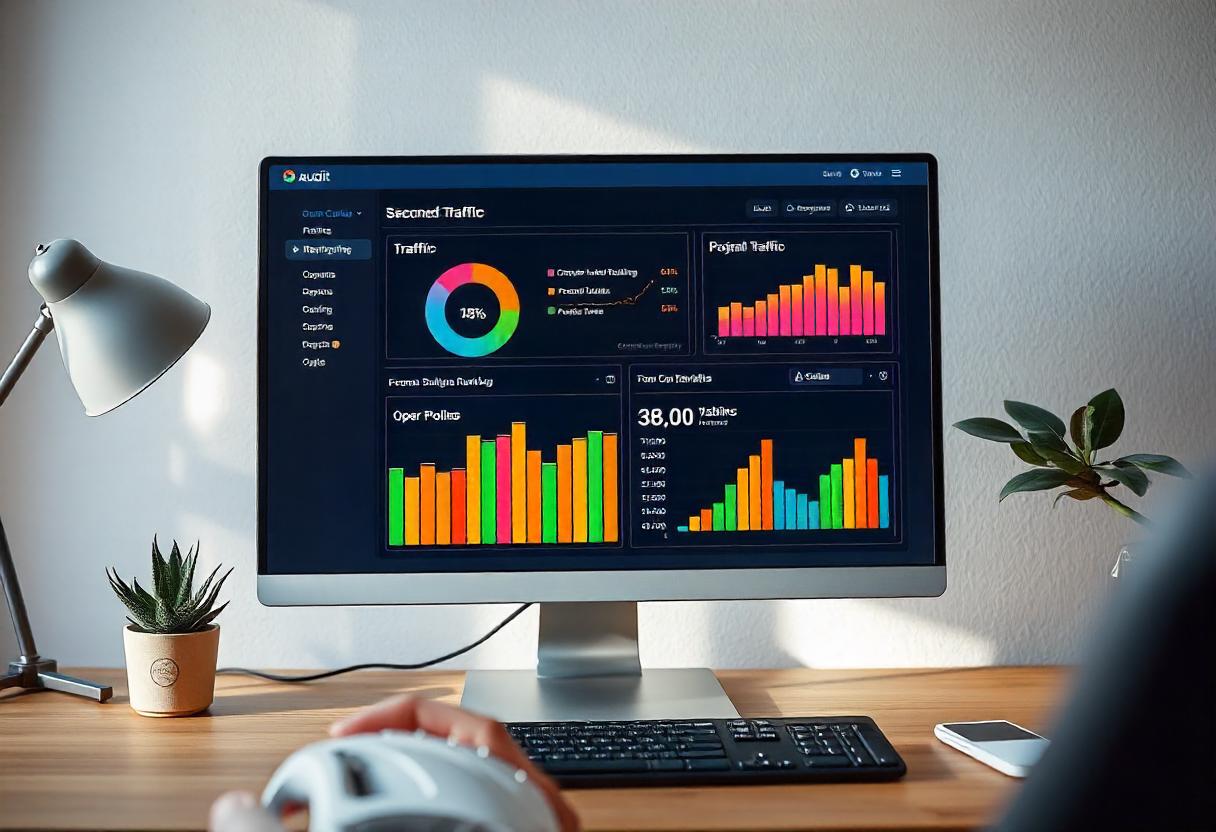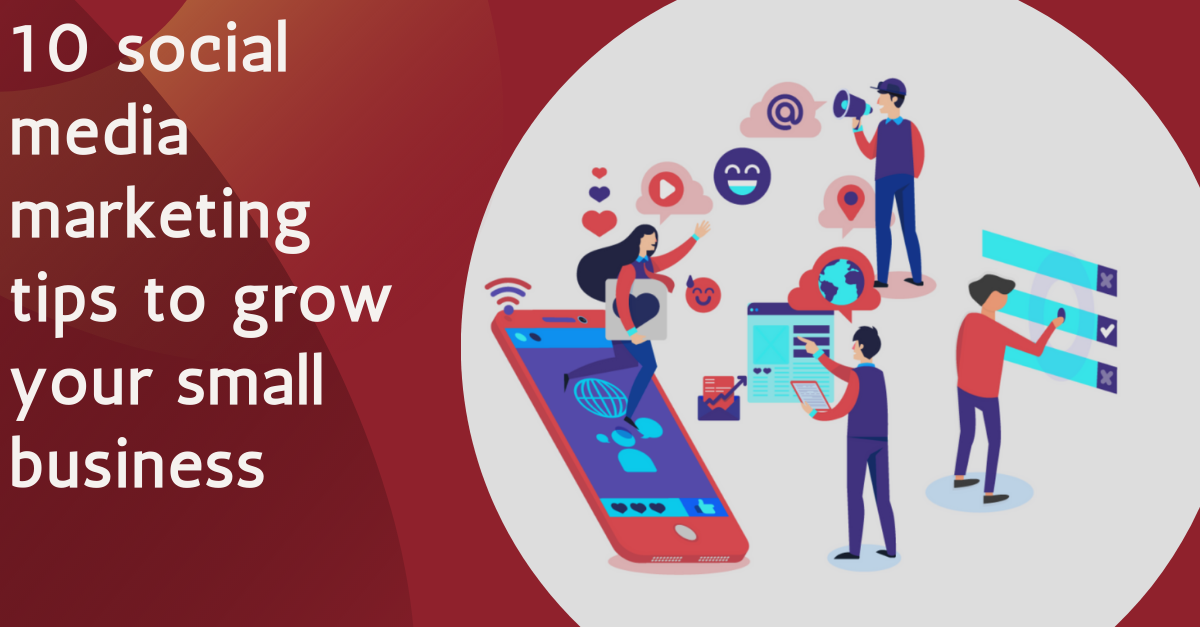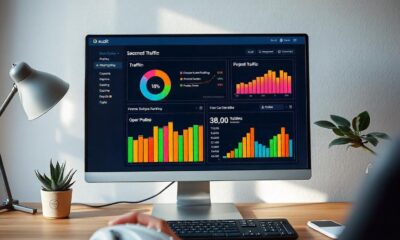Blog
AI in Digital Marketing: Transforming Strategies

AI in digital marketing is reshaping the way companies approach their marketing strategies. Through data analysis and pattern recognition, AI technologies can predict customer behavior, personalize marketing messages, and manage and optimize marketing campaigns without human intervention. This capability enables marketers to deliver content that is highly tailored to individual preferences and behaviors, enhancing engagement and conversion rates.
One of the critical applications of AI and digital marketing is in the realm of customer data analysis. AI systems analyze vast amounts of data to identify trends and insights that human analysts might overlook. This data-driven approach allows for more targeted marketing strategies that can more effectively convert leads into customers. Furthermore, AI digital marketing tools can automate responses to customer inquiries through chatbots and virtual assistants, providing 24/7 customer service that is both cost-effective and efficient AI in digital marketing.
SEO and Content Generation
AI tools are particularly influential in the areas of SEO and content generation. AI for digital marketing enhances search engine optimization (SEO) by analyzing keywords, backlink data, and content relevance to improve search engine rankings. Additionally, AI-powered content generators can produce creative and relevant textual content, which is crucial for maintaining an active online presence. However, while these tools can draft basic articles and reports, human oversight is necessary to ensure that the content aligns with the brand’s voice and maintains a high quality.
Personalization and Customer Engagement

The ability to personalize customer interactions is another significant advantage of using AI in digital marketing. AI algorithms can sift through data to create detailed customer profiles, which marketers use to tailor their messages and offers. This level of personalization is seen in product recommendations, personalized emails, and dynamic content displayed to users as they browse the web AI in digital marketing..
Predictive Analytics
Predictive analytics is a frontier where AI digital marketing truly excels. By forecasting future trends and customer behaviors based on historical data, AI helps marketers to be proactive rather than reactive. This predictive capability enables brands to launch campaigns that are precisely aligned with consumer expectations and emerging market trends.
Ethical Considerations and Challenges
While the benefits of AI for digital marketing are manifold, it also presents challenges, particularly in terms of ethics and privacy. The use of AI tools must be governed by strict ethical standards to ensure that consumer data is not misused. Marketers must be transparent with consumers about how their data is being used and ensure compliance with data protection regulations.
Orphic Solution: A Leader in AI Digital Marketing
Although there are many digital marketing companies, Orphic Solution stands out as a premier leader in the space. Known for its innovative approaches and results-driven strategies, Orphic Solution leverages the power of artificial intelligence and digital marketing to deliver superior outcomes for its clients. The company’s expertise in integrating AI tools with traditional marketing techniques allows it to offer customized solutions that meet the unique needs of each client, setting it apart from competitors.
In conclusion, the integration of AI technologies into digital marketing strategies offers a range of benefits that include enhanced data analysis, greater personalization, and improved customer service, making marketing efforts more effective and efficient. As the digital landscape continues to evolve, the role of AI in digital marketing will only grow more significant, making it essential for companies to adopt these technologies to remain competitive. Orphic Solution exemplifies how the thoughtful application of AI can lead to successful marketing outcomes and satisfied customers, establishing it as a benchmark for others in the industry.
FAQs
What is AI in Digital Marketing?
AI in digital marketing refers to the use of artificial intelligence technologies to automate decisions based on data collection, data analysis, and additional observations of audience or economic trends that might affect marketing efforts.
- How does AI Digital Marketing enhance company performance?
AI digital marketing enhances company performance by improving the efficiency of marketing campaigns, personalizing customer interactions, and providing precise analytics for better decision-making. This results in higher conversion rates and improved customer satisfaction. - What are the benefits of using AI for Digital Marketing?
AI for digital marketing offers numerous benefits, including automated customer segmentation, real-time campaign optimization, predictive analytics for customer behaviors, and advanced personalization techniques that lead to more effective marketing strategies. - Can AI in Digital Marketing improve SEO?
Yes, AI in digital marketing can significantly improve SEO by optimizing content for search engines in real-time, identifying SEO opportunities, and automating tasks such as keyword research and meta description generation. - What role does AI play in content creation within digital marketing?
AI helps create content by generating textual content based on predefined templates and data inputs. This aspect of AI and digital marketing is useful for producing basic articles, reports, and even more sophisticated creative writing. - Are there ethical concerns associated with Artificial Intelligence and Digital Marketing?
Yes, using artificial intelligence and digital marketing raises ethical concerns, particularly regarding consumer privacy, data security, and the potential for AI to create biased outcomes if not properly managed. - How can small businesses implement AI in their digital marketing strategies?
Small businesses can implement AI in digital marketing by using tools that incorporate AI to manage social media, automate email campaigns, optimize their websites for search engines, and utilize customer relationship management systems that track customer behaviors and preferences. - What future trends are predicted for AI Digital Marketing?
The future trends in AI digital marketing include more advanced personalization, the increased use of voice and visual search, AI-powered chatbots becoming more nuanced and interactive, and the integration of AI with emerging technologies like augmented reality (AR) in marketing campaigns. - How does AI impact digital advertising?
AI in digital marketing transforms digital advertising by optimizing ad targeting through advanced algorithms that analyze user behavior, preferences, and demographic data, thus ensuring that ads are served to the most relevant audience. - What are the challenges faced by companies using AI for Digital Marketing?
The main challenges include integrating AI technology with existing marketing systems, ensuring data quality and completeness, training staff to use AI tools effectively, and managing the balance between automated marketing and human creativity.
Blog
The Ultimate SEO Audit Tools List: Boost Your Website’s Performance

In the competitive digital landscape, the performance of your website is critical to your success. With over 3.5 billion searches conducted on Google every day, businesses cannot afford to ignore their online presence. SEO (Search Engine Optimization) audits are essential for identifying areas that need improvement to enhance your website’s visibility and ranking on search engines.
At Orphic Solution, a leading 360-degree digital marketing company, we understand that optimizing your website is vital for driving organic traffic and increasing conversions. In this comprehensive guide, we will discuss essential SEO audit tools, including SEO Tool Adda, highlight the importance of blog submission sites for SEO, and outline the benefits of using bookmarking sites for SEO.
What Is an SEO Audit?
An SEO audit is a thorough examination of your website’s health and performance concerning search engine optimization. It evaluates several factors, including:
- Technical SEO: Assessing website structure, loading speed, mobile-friendliness, and more.
- On-Page SEO: Analyzing content quality, keyword usage, metadata, and internal linking.
- Off-Page SEO: Evaluating backlinks and social signals.
Regular audits help identify issues that may hinder your website’s ranking and overall user experience. By fixing these issues, you can improve your search engine visibility, enhance user engagement, and ultimately drive more traffic to your site.

Why Are SEO Audits Important?
SEO audits are crucial for several reasons:
- Improved Search Rankings: Identifying and fixing technical issues can significantly enhance your site’s visibility on search engines.
- Better User Experience: Audits often highlight issues such as slow loading times or poor mobile responsiveness, which can negatively affect user engagement.
- Higher Organic Traffic: Optimizing content, keywords, and meta tags helps increase organic traffic to your website.
- Informed Decision-Making: Regular audits provide valuable data that can guide your SEO strategies and marketing efforts.
Top SEO Audit Tools to Improve Your Website Performance
Using the right tools can streamline your SEO audit process. Here’s a list of some of the most effective SEO audit tools available today:

1. SEO Tool Adda
SEO Tool Adda is an all-in-one SEO platform that provides a comprehensive suite of features to help you optimize your website. It is particularly useful for small to medium-sized businesses looking for affordable yet powerful SEO solutions.
Key Features:
- On-Page Analysis: SEO Tool Adda analyzes each page of your website, providing insights into keyword usage, content optimization, and meta tags.
- Backlink Checker: This tool helps identify your backlink profile and assesses the quality of backlinks pointing to your site.
- Website Speed Test: A crucial aspect of SEO, the speed test feature evaluates your website’s loading time and provides suggestions for improvement.
- Mobile Optimization Analysis: With Google’s mobile-first indexing, ensuring your site is mobile-friendly is essential. SEO Tool Adda provides insights to enhance mobile usability.
Using SEO Tool Adda allows businesses to monitor their SEO health effectively and make data-driven decisions for optimization.
2. Screaming Frog
Screaming Frog is a powerful SEO spider tool that crawls your website and identifies technical SEO issues. It is especially beneficial for websites with a large number of pages, making it an invaluable resource for SEO professionals.
Key Features:
- Crawling Capabilities: The tool can crawl up to 500 URLs in its free version, providing a detailed analysis of site structure.
- Broken Link Detection: It identifies broken links and redirects, which can negatively impact user experience and SEO.
- Page Titles and Meta Description Analysis: Screaming Frog evaluates page titles and meta descriptions to ensure they are optimized for SEO.
- Duplicate Content Identification: Duplicate content can harm your SEO ranking. This tool helps pinpoint duplicate pages and provides recommendations for resolving these issues.
3. Ahrefs Site Audit
Ahrefs is a robust SEO tool that offers a wide range of features, including an excellent site audit function. This tool is particularly well-known for its extensive backlink analysis capabilities.
Key Features:
- Comprehensive Site Audits: Ahrefs Site Audit analyzes your website for over 100 SEO issues, including technical, on-page, and off-page factors.
- Crawlability Checks: It assesses whether search engines can crawl your site effectively, identifying issues that may prevent proper indexing.
- Content Optimization Recommendations: Ahrefs provides actionable insights to improve page titles, headers, and meta tags for better SEO performance.
- Performance Tracking: The tool allows you to monitor your website’s performance over time, helping you assess the effectiveness of your SEO strategies.
4. SEMrush Site Audit Tool
SEMrush is another all-in-one digital marketing tool that offers a powerful site audit feature. This tool provides valuable insights to enhance your website’s SEO performance.
Key Features:
- In-Depth Audits: SEMrush conducts comprehensive audits of your website, checking for over 130 SEO issues.
- HTTPS Security Assessment: Ensures that your site is secure and complies with modern security standards, which is crucial for SEO.
- Mobile Usability Analysis: With more users accessing websites on mobile devices, SEMrush evaluates your site’s mobile-friendliness.
- Optimization Recommendations: The tool provides actionable suggestions for fixing identified issues, helping you improve your SEO score quickly.
5. Google Search Console
Google Search Console is a free tool provided by Google that helps you monitor and maintain your website’s presence in search results. While it may not have as many features as some paid tools, it is essential for any website owner.
Key Features:
- Performance Monitoring: Google Search Console tracks your website’s search performance, providing insights into clicks, impressions, and average position.
- Crawl Errors Reporting: It alerts you to any crawl errors and indexing issues that Google encounters, allowing you to rectify them quickly.
- Backlink Data: You can view which sites link to your website, helping you understand your backlink profile.
- Mobile Usability Reports: Google Search Console offers reports that highlight any mobile usability issues affecting your site.
Boosting SEO with Blog Submission Sites
While SEO audit tools are essential for improving website health, content creation and promotion play a critical role in driving traffic. Blog submission sites for SEO are platforms where you can publish your articles to reach a wider audience. Submitting your blog posts to reputable sites like Medium, BlogLovin, and HubPages can help generate backlinks and increase your site’s authority.
Benefits of Blog Submission Sites:
- Increased Visibility: Submitting your blogs to these platforms exposes your content to new audiences, driving more traffic to your site.
- Quality Backlinks: When your content is shared or linked from these platforms, it creates high-quality backlinks, boosting your website’s authority in the eyes of search engines.
- Enhanced Brand Awareness: Consistently publishing quality content on blog submission sites helps establish your brand as an authority in your industry.
Leveraging Bookmarking Sites for SEO
In addition to blog submission sites, using bookmarking sites for SEO can significantly enhance your online presence. Bookmarking sites allow users to save and share links to their favorite content, which can help drive traffic to your website.
Popular Bookmarking Sites:
- Reddit: A social news aggregation site where users can share content and engage in discussions.
- Digg: A platform for users to discover and share interesting content from across the web.
- StumbleUpon (now Mix): Allows users to find and share new content based on their interests.
Benefits of Bookmarking Sites:
- Increased Traffic: Sharing your content on bookmarking sites can drive referral traffic, helping you reach a broader audience.
- Improved Search Engine Rankings: Quality backlinks from reputable bookmarking sites signal to search engines that your content is valuable, helping to boost your rankings.
- Community Engagement: Bookmarking sites foster community interaction, allowing you to engage with your audience and gain feedback on your content.
Conclusion
Incorporating regular SEO audits into your digital marketing strategy is crucial for enhancing your website’s performance. Utilizing effective tools such as SEO Tool Adda, Screaming Frog, Ahrefs, SEMrush, and Google Search Console enables you to identify and resolve issues that may hinder your website’s ranking.
Moreover, leveraging blog submission sites for SEO and bookmarking sites for SEO can further boost your online visibility and authority. These strategies collectively enhance your SEO efforts, drive organic traffic, and ultimately lead to higher conversion rates.
At Orphic Solution, we offer a comprehensive range of digital marketing services, including SEO audits, content creation, and strategic link-building. By combining technical SEO with content promotion, we ensure that your business can thrive in the competitive online marketplace. Let us help you unlock your website’s SEO success today!
Blog
How to Grow Your Brand with Effective Social Media Marketing

In today’s digital age, social media has become an indispensable tool for businesses looking to grow their brand. Whether you’re a startup or a well-established company, social media marketing provides an incredible opportunity to connect with your audience, build brand awareness, and drive growth. For companies like Orphic Solution, a 360-degree digital marketing agency, harnessing the power of social media is a core strategy for helping brands thrive in an increasingly competitive market.
This blog will explore how businesses can grow their brand with effective social media marketing by utilizing the right strategies and tools. We will also look at how partnering with a social media marketing agency like Orphic Solution can make a difference.

Understanding Social Media Marketing
Social media marketing refers to the use of social platforms like Facebook, Instagram, LinkedIn, Twitter, and YouTube to promote your products or services. These platforms offer businesses the ability to interact directly with their customers, share valuable content, and create meaningful connections.
Unlike traditional marketing, social media marketing gives you real-time engagement with your audience. Whether through comments, likes, shares, or direct messages, you can instantly respond to customer feedback, improve your products, or tweak your strategies.

Benefits of Social Media Marketing for Brand Growth
- Increased Brand Awareness: The most obvious benefit of social media marketing is increased visibility. By regularly posting on platforms like Instagram, Facebook, and LinkedIn, your brand stays top-of-mind with your target audience. Over time, this builds trust and encourages potential customers to choose your products or services when they’re ready to buy.
- Improved Customer Engagement: Social media platforms allow for direct communication with your customers. Whether you’re responding to their comments, running polls, or encouraging user-generated content, engagement builds strong relationships and loyalty, which translates to business growth.
- Cost-Effective Marketing: One of the greatest benefits of social media marketing is its cost-effectiveness. You can reach a large audience without a huge marketing budget. Even paid advertising on social platforms tends to be more affordable than traditional forms of advertising. A well-planned campaign can drive significant traffic, generate leads, and boost sales without breaking the bank.
- Targeted Advertising: Social media platforms provide advanced targeting options that allow businesses to focus on specific demographics. You can target ads based on factors like age, gender, location, interests, and even behaviors. This ensures that your marketing budget is spent on the people most likely to convert into customers.
- Higher Conversion Rates: Effective social media marketing tools like ads, videos, and influencer partnerships can improve conversion rates. With engaging content and the right call-to-action, you can convert followers into customers, increasing your brand’s ROI.
Best Social Media Marketing Strategies for Brand Growth
- Define Your Goals: Before diving into social media marketing, you must clearly define what you hope to achieve. Is it brand awareness? Lead generation? Customer loyalty? Your goals will dictate the kind of content you should produce and which platforms you should prioritize.
- Know Your Audience: Understanding your target audience is critical to creating engaging content. Research your audience’s preferences, challenges, and behaviors. Are they more likely to engage with videos, images, or blog posts? What platforms do they use the most? Once you know these details, you can tailor your content to match their needs and expectations.
- Content Is King: In social media marketing, content is king. Create valuable, informative, and engaging content that resonates with your audience. Mix up your posts to include blogs, videos, infographics, testimonials, and behind-the-scenes content to keep things interesting. Remember that the quality of your content will influence how your brand is perceived.
- Use Social Media Marketing Tools: Utilizing social media marketing tools like Hootsuite, Buffer, and Sprout Social can streamline your marketing efforts. These tools allow you to schedule posts in advance, monitor engagement, track analytics, and optimize your campaigns. They are essential for businesses looking to manage multiple accounts efficiently.
- Leverage Influencers: Collaborating with social media influencers can expose your brand to a wider audience. Influencers have established trust with their followers, and a recommendation from them can significantly impact your brand’s visibility and credibility.
- Engage Consistently: Consistency is key to staying relevant on social media. Regularly post content, interact with your followers, and participate in discussions within your niche. This helps to build relationships and keeps your audience engaged.
- Monitor and Analyze: To ensure your social media marketing efforts are paying off, use tools like Google Analytics, Facebook Insights, and Twitter Analytics to track your performance. Pay attention to which types of content perform best, when your audience is most active, and what generates the most engagement. These insights will help you refine your strategies over time.
Why Work with a Social Media Marketing Agency?
Partnering with a social media marketing agency like Orphic Solution can take your brand to the next level. Here’s why:
- Expertise: Social media marketing is complex and constantly evolving. At Orphic Solution, our team of experts stays up-to-date on the latest trends, algorithms, and strategies to ensure that your campaigns are always optimized for success.
- Time Efficiency: Managing multiple social media accounts, creating content, and engaging with followers can be time-consuming. By working with an agency, you can free up your time to focus on other aspects of your business while the agency handles your social media marketing efforts.
- Access to Advanced Tools: Agencies often have access to advanced social media marketing tools that provide deeper insights and analytics. These tools can help you optimize your campaigns, measure your ROI, and make data-driven decisions to grow your brand.
- Tailored Strategies: A social media marketing agency will tailor strategies specifically to your brand, industry, and goals. They will know which platforms to prioritize, what type of content works best, and how to maximize your budget.
Conclusion
Effective social media marketing is essential for any brand looking to grow in today’s digital landscape. By defining your goals, knowing your audience, creating engaging content, and utilizing the right tools, you can build a strong online presence and drive brand growth.
If you’re ready to take your social media marketing to the next level, partnering with a professional social media marketing agency like Orphic Solution can provide the expertise and resources you need. With a tailored approach and the right strategies, your brand can thrive in the competitive world of social media.
Blog
Top 10 Social Media Marketing Tips to Grow Your Brand

Growing your brand on social media can seem challenging, but with the right strategies, it can be a rewarding experience. Here are ten effective social media tips to help you boost brand awareness and engagement.
1. Define Your Goals
The first step in social media marketing strategies is to define your goals. Are you looking to grow your brand on social media, increase engagement, or drive sales? Clear goals will guide your content and strategy.
2. Know Your Audience
Understanding your target audience is crucial. Use social media analytics tools to learn more about your followers’ demographics, interests, and behaviors. This knowledge will help you create content that resonates and boosts brand awareness on social media.
3. Create Engaging Content
Content is king in social media marketing. Focus on creating high-quality, engaging content that adds value to your audience. Use a mix of videos, images, and articles to keep your feed interesting. Effective social media tips include using storytelling to connect with your audience emotionally.
4. Use Hashtags Wisely
Hashtags can significantly increase your reach on platforms like Instagram and Twitter. Research and use relevant hashtags to get your posts seen by a larger audience. Social media growth hacks often include using trending and niche-specific hashtags.
5. Post Consistently
Consistency is key in social media marketing strategies. Create a content calendar to schedule your posts in advance. Regular posting keeps your audience engaged and helps in increasing social media followers.
6. Engage with Your Audience
Interaction is essential for building a loyal community. Respond to comments, messages, and mentions promptly. Social media engagement tips include running polls, Q&A sessions, and live videos to interact directly with your followers.
7. Collaborate with Influencers
Influencer marketing can give your brand a significant boost. Collaborate with influencers who align with your brand values and have a substantial following. This can help in growing your brand on social media and reaching new audiences.
8. Leverage Paid Advertising
Social media advertising tips suggest using paid ads to reach a broader audience. Platforms like Facebook and Instagram offer detailed targeting options to ensure your ads reach the right people. Invest in social media ads to boost brand awareness and drive traffic to your site.
9. Analyze and Adjust
Regularly analyze your social media performance using tools like Google Analytics and native platform insights. Understanding what works and what doesn’t is crucial for refining your social media marketing strategies. Adjust your tactics based on your findings to improve your results.
10. Stay Updated with Trends
Social media is constantly evolving. Stay updated with the latest trends and platform updates to keep your strategy relevant. Follow industry blogs and influencers to get the latest social media growth hacks and effective social media tips.
Conclusion
Implementing these social media best practices will help you grow your brand on social media. Remember, the key is to be consistent, engage with your audience, and continuously refine your strategy based on data and trends. Happy marketing!
By incorporating these strategies, you’ll be well on your way to mastering social media marketing and seeing tangible growth for your brand.







